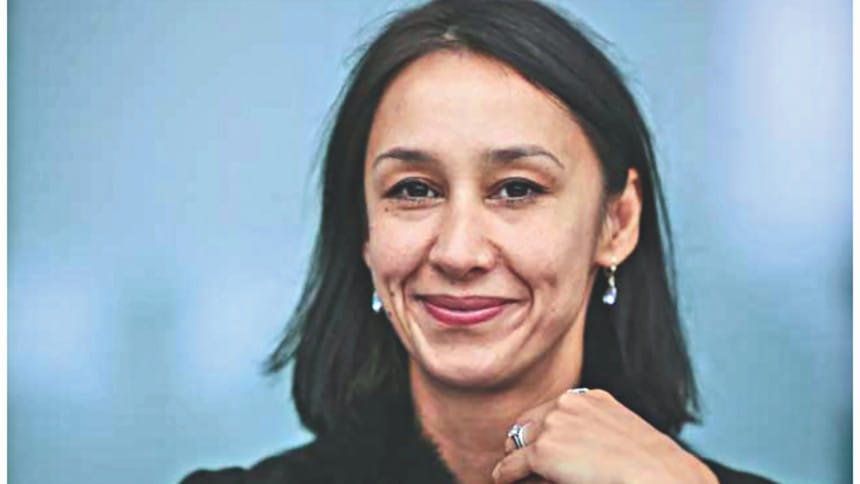“I never start writing until I can hear the voices of the main characters in my head”

How did you know you wanted to be a writer?
I always had a desire to write fiction from school days onwards, but 'to be a writer' seemed like an unattainable goal. So I suppressed that desire for a long time. It wasn't until I had my first child that I began to write seriously. When I woke up in the night to feed the baby I'd often have trouble getting back to sleep. I started using that time to write, and once I started it was impossible to stop.
What are you working on now? Can you give us a glimpse into your writing process?
I'm working on a novel set in London. It's about a young woman, a junior doctor, and her family. I hope to finish it early next year and until then I can't say much more. Having a novel published is such a strange process—it's so internal, so long in the gestation, so private, when you're writing and I find it difficult to talk about it until it's done.
As to my writing process, I do my research, fill numerous notebooks, gather fragments, snatches of dialogues, notes on characters, ideas for plots and subplots. I never start writing until I can hear the voices of the main characters in my head. Once they start speaking, I can start writing. I have always had an ending in mind as well before I begin the first chapter. I have a destination but not a route map. I have ideas for multiple routes, and the process is quite organic once I start putting words on the page. And when I get to the end it's not necessarily the ending that I first had in mind.
Have you considered working on a sequel of Brick Lane, considering the immense success it had, or just to return to those characters?
I haven't considered it, but maybe I will one day! It would have to come out of a genuine desire though, rather than having anything to do with the success of Brick Lane. The idea of 'milking' that success just horrifies me. Sometimes I do find myself wondering what became of Shahana, what she would be doing now, where Bibi would be living and working, who they might have married, and so on. But they are only idle thoughts and so far haven't led me to want to revisit those characters in print.
You recently wrote (published in July on Literary Hub) about the myth of positive discrimination in publishing for female writers and writers of colour and on how you are labeled as a writer prefixed with your ethnicity or colour. How do you get taken seriously as just a writer?
Ah, I wish I knew the answer to that. I think it's something that women writers face as well. There's certainly a gender bias in the literary world. To be honest I don't think there's anything I can do other than write what I want to write in the way I want to write it, regardless of what anyone else thinks I should be writing.
Do you subscribe to the "write what you know" philosophy often given to young writers?
I don't subscribe to that view in the sense of instructing writers to 'stay in your lane'. Novelists should have a huge hunger to find out about other people. They should be curious about the world. Writing is not simply navel-gazing. For me, 'write what you know' comes into play in a deeper sense: you have to dig deep into yourself to be able to tap emotional truths and bring intensity and integrity to the writing. This is not at all the same as saying stick to loosely disguised autobiography.
What advice would you give to young Bangladeshi or diaspora writers writing in English?
The same advice as I'd give to any other aspiring writer: read, read, read. Having taught creative writing courses, it never ceases to amaze me when people want to write novels but don't read them. The best way to hone your own writing skills is by reading widely, reading with a critical eye and reading a lot. To young Bangladeshi or diaspora writers writing in English, I would also add, write the book that you want to read, whether that's sci-fi or crime or that genre known as 'literary fiction'. We should be as free to write our stories in any way as any other person from any other background.
What are you looking forward to at DLF and getting to know about Dhaka's literary scene?
I'm looking forward to all of it. Literary festivals here can be a little bit staid and stuffy and I think DLF will be like a breath of fresh air.
A version of this interview was first published in the Dhaka Lit Fest brochure.

 For all latest news, follow The Daily Star's Google News channel.
For all latest news, follow The Daily Star's Google News channel. 



Comments